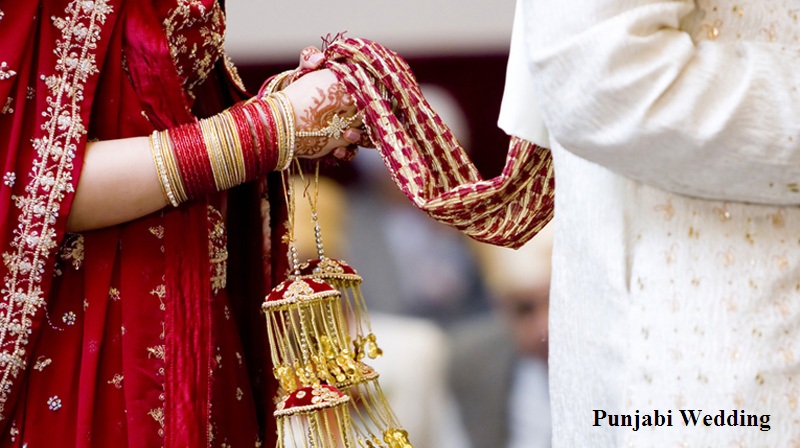
Anand Karaj - Punjabi Engagement and Wedding Ceremony
India is the most culturally diverse country in the world. Punjab, a state in India which is now divided between India and Pakistan. Punjabis get married through a religious ceremony called Anand Karaj which means "Blissful Union".
In the Anand Karaj ceremony, families and friends from both sides are actively involved. . A Baraat from the groom’s side comes to the Gurudwara and the bride’s family and friends welcome and greet them. Most of the families combine the wedding with the engagement ceremony "Kurmai", which is held just before the Laavan (wedding vows). Generally, Punjabi weddings take place in the morning and are completed before noon. After the completion of the ceremony, Langar (formal lunch) is organized.
The history of this marriage ceremony is traced back to the time of the Third Sikh Guru - Amar Das.
Some facts about the Anand Karaj
Marriage is considered as bonding of equals. Therefore, caste, social status, race or lineage are not considered. Also, no dowry is allowed.
Astrological considerations and superstitious beliefs have no room when it comes to fixing the date of the wedding.
Anand Karaj can only take place in a Gurudwara according to a verdict of the Sri AkalTakht Sahib. An Amritdhari (baptized) Sikh may only perform the marriage ceremony.
The expenditure of the wedding must be shared between the two sides as equally as possible.
Anand Karaj received the first legal sanction through the Anand Marriage Act, which was finally adopted in 1909.
Engagement receptions
Engagement is the first step towards a partnership between two souls that would bloom into a marriage and last a lifetime. Engagement ceremonies are mostly uniform across most of the religions and ethnicities across India, differing in nuances and details of the rituals. https://www.punjabiwedding.com Though, there is no compulsion of the ring exchange ceremony across the country, but there is always an involvement of this ritual as the formal announcement of the wedding. Engagements are known by several names across various states and religions in India.
Punjab- Kurmai or Shagan.
Muslims- Mangni, it generally takes place the day before the wedding after the Istikara and Imam-Zamin rituals.
In Christians, the Engagement Ceremony is generally a one-day affair with the wedding and reception happening on the same day.
Rajputs- the engagement ceremony in the Rajputs of Rajasthan is called ‘Tilak’ (similar to the Marwaris). The groom is presented with an Engagement Ring as well as a Sword.
Hariyanvi Jaats- Sagai.
Kashmir- engagement is called Kasamdry amongst the Kashmiri Pandits.
Gujaratis- Gol Dhana or Gor Dhana.
Biharis- in Bihar and parts of Uttar Pradesh, the engagement is called Cheka.
Marathis- Sakhar Puda.
Odisha- Nirbandh.
Bengal- Ashirbaad, and https://www.muslimwedding.com this ceremony does not involve exchange of rings.
Telugu- Varapuja or Kanya Nishchayam.
Tamil- Nichayathartham.
Kannada- Nischay Tamulam.
Kerala- Nishchayam.
North East- There is Seven States with culture variations across each state.
Mizoram follows Christian traditions.
In Meghalaya, engagement rings are exchanged in bags of betel nuts.
In Manipur, the engagement is called Heijapot.